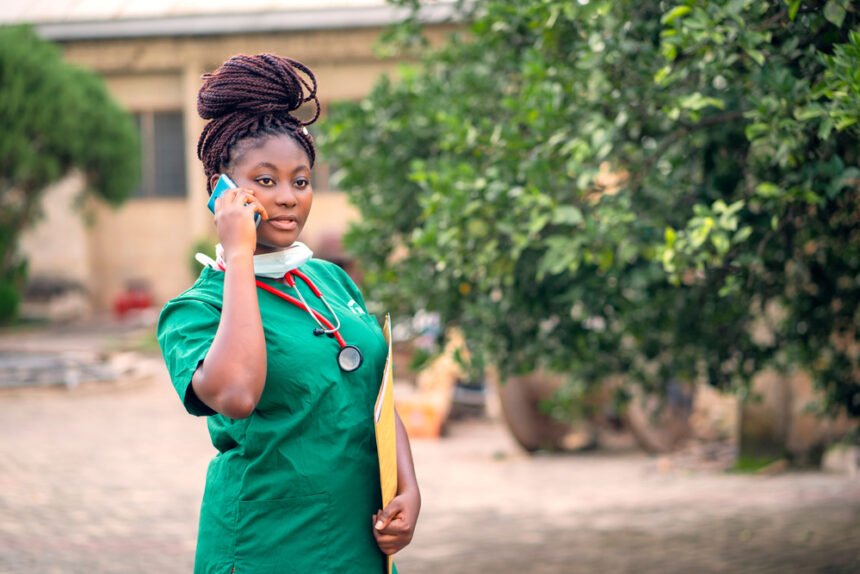While nurses and other medical professionals have always worried about bringing germs home from the hospital with them, the highly infectious nature of the coronavirus has made it more urgent than ever. Many nurses are wondering how they can keep themselves and their families safe and stop bringing germs home from work. If you’re a nurse or other medical professional who’s looking to decontaminate after a long shift, here are eight steps you should take:
Take precautions during your shift.
As the saying goes, an ounce of prevention is worth a pound of cure, and that’s especially true when it comes to germs and contamination. Washing your scrubs won’t do any good if you inhale droplets or touch your face with a contaminated hand. While at work, use whatever PPE is available to you and adhere to recommended guidelines as often as possible given the supply chain issues. Follow best practices for engaging with both patients and coworkers to minimize disease transmission.
Wash your hands properly.
Washing your hands is one of the single best things you (and anyone else) can do to cut down on the transmission of disease. Soap and water is always your best bet, but you can use a hand sanitizer with at least 60% alcohol if handwashing isn’t an option. To wash your hands, wet them and apply soap. Lather your hands and scrub them for at least 20 seconds, making sure to get the backs of your hands, between your fingers, around your thumbs and under your nails. Rinse them thoroughly and dry them completely to help keep the water from drying out your skin.
Change your uniform at work.
Even in totally normal times, it’s not a good idea to wear your used scrubs home. This is especially true during the coronavirus pandemic. Bring a clean change of clothes in a sealed plastic bag and a second plastic bag to hold your dirty scrubs on the way home. At the end of your shift, wash your hands, remove your scrubs and seal them in the dirty bag before changing into your clean clothes.
Swap out your shoes.
You might also want to wear a clean pair of shoes, especially if you drive to and from work (and doubly so if you share your car with other people). If you can, seal your nursing shoes in a plastic bag and leave them in your locker. Change into a separate pair of shoes that you can use to get to and from the hospital. You’ll still need to leave these shoes outside the door when you get home. Never wear them inside! This method will cut down on the chances that you track something nasty into your car.
Wash your scrubs.
When you get home, strip off your clothes and put them in the washing machine immediately. Then, make sure to dispose of the bag. Wash with the hottest water possible. If your washer has a sanitize cycle, you should use it. Immediately after starting the load, go take a shower and scrub yourself down so you’ll be as clean as your clothes. Once you’re finished washing your scrubs (and yourself), move the garments to the dryer and dry them on the highest setting for at least 30 minutes.
Sanitize your shoes.
As stated above, your work shoes should be left outside your home in a bag if at all possible. If they’re made of a non-porous material, you can wipe them down thoroughly with disinfectant after each shift to keep them clean. If they’re made of fabric, leather, or some material that can’t be treated with disinfectant, check the manufacturer’s label for care and cleaning instruction. Most nursing shoes can be washed in the washing machine and left to air dry, but you should always follow the manufacturer’s instructions to avoid damaging the shoe.
Don’t forget your devices.
Phones, pagers, and other devices aren’t just vital communication tools — they’re also germ carriers. Germs can survive on hard surfaces for a long time, and we touch these devices all the time. As a result, it’s likely that these devices have germs on them. If possible, you should keep your device sealed in a plastic bag during your shift to keep them safe from germs. When you get home, wash your hands, remove the device from the bag and put the bag in the trash outside. Give the phone a quick wipe down with a disinfectant wipe, paying special attention to any crevices that could harbor debris. Dispose of the wipe once you’re done and let the phone dry. You can also disinfectant pens, credit cards and any other hard objects that you use at work.
Consider isolating yourself.
If you’re working with highly infectious patients, or if a person who you live with has a higher risk of contracting coronavirus, you might want to self-quarantine to minimize the chances of passing the virus to others. This might include isolating yourself in a separate living space, using your own bathroom or preparing and eating meals separately. Some hotels and Airbnb hosts are providing places to stay at steeply discounted rates, so if you can’t self isolate in your current living situation, that may also be an option for you.
While you can’t completely control your exposure to germs, including coronavirus, you can take steps to keep both you and the people you live with safe from coronavirus. Follow this eight-step process to decontaminate after a long nursing shift and lower your chances of transmitting infectious diseases.

